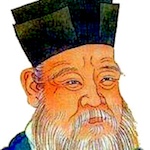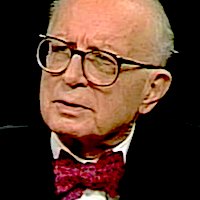

Tao Te Ching

Zhu Xi 朱熹
(Zhū Xī)
1130 – 1200 CE
Called by historians the “second most influential thinker in Chinese history” and “one of the most influential people” in the last millennium, Zhu Xi blended Confucianism, Taoism, and Buddhism into a tradition called Neo-Confucianism. He synthesized ancient teachings into The Four Books which became the heart of the educational, bureaucratic, and governmental system for over 700 years in China as well as Japan, Korea and other countries. More Confucian than Buddhist or Taoist, the emphasis is on practical wisdom rather than the wisdom beyond words but still set a foundation for wise and compassionate government leading to peace and prosperity.
Eras
Chinese
5 Kingdom of Dali 大理国 (937 – 1253 CE)Southern Song (1127 – 1279 CE)
Jin dynasty (1115 – 1234 CE)
Western Xia 西夏 (1038 – 1227 CE)
Western Liao (1124 – 1218 CE)
Sources
Quotes by Zhu Xi (5 quotes)
from Four Books
Comments: Click to comment
from Four Books
Comments: Click to comment
“The feminine, the valley, the spontaneity of spiritual transformation, this subtle and profound way to wonder is the most powerfully creative principle”
Chapters:
6. The Source
Comments: Click to comment
“The sovereign without the small man suffers from hunger; the small man without the sovereign lives in chaos.”
Comments: Click to comment
“Nature is the highest good and the highest excellence lies in accepting the laws of Nature completely.”
Comments: Click to comment
Quotes about Zhu Xi (2 quotes)

“Just as Shankara in 8th century India brought the scattered insights of the Upanishads into an intellectual system; and just as Aquinas in 13th century Europe wove Aristotle and St. Paul into the Scholastic philosophy; so Zhu Xi took the loose apothegms of Confucius and built upon them a system of philosophy strong enough to preserve for 7 centuries the Confucian leadership in Chinese political and intellectual life.”
Comments: Click to comment

“In time, the Taoist ways of thinking about man and nature were assimilated into the renewed Confucian theorizing by the great synthesizer Zhu Xi.”
Comments: Click to comment
Comments (0)